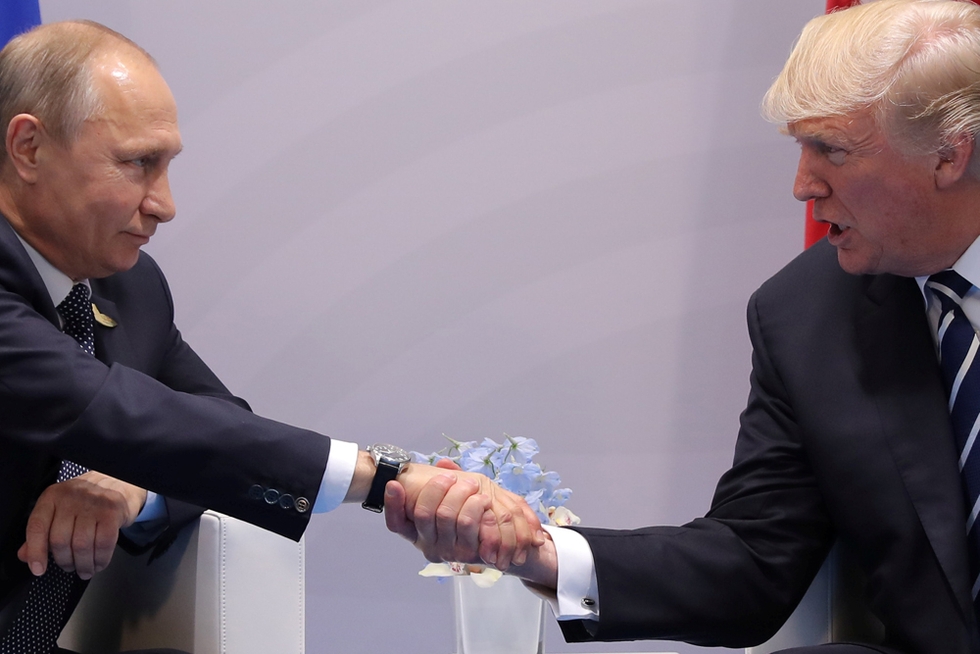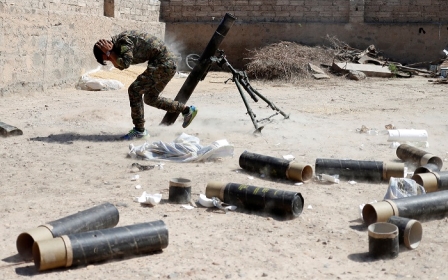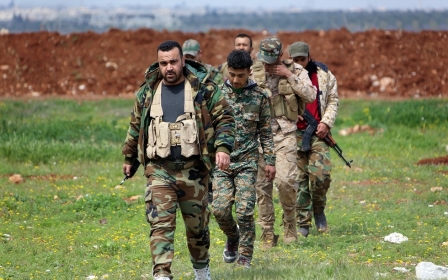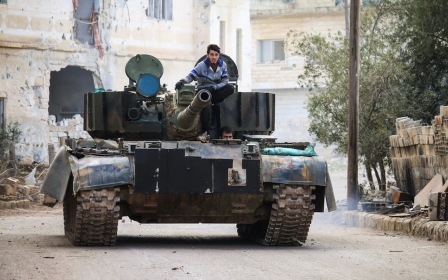US and Russia 'agree southwest Syria ceasefire' after presidents meet

The United States, Russia and Jordan have reached a ceasefire and "de-escalation agreement" in southwestern Syria, one of the combat zones in a six-year-old civil war, Washington and Moscow said on Friday.
The ceasefire will go into effect on Sunday, Russian Foreign Minister Sergei Lavrov and Jordan's Petra news agency said.
The deal was announced after a meeting between US President Donald Trump and Russian President Vladimir Putin at the G20 summit of major economies in the German city of Hamburg.
US Secretary of State Rex Tillerson said the area covered by the ceasefire affects Jordan's security and is a "very complicated part of the Syrian battlefield".
Russia and Iran are the main international backers of Syrian President Bashar al-Assad while Washington supports some of the rebel groups fighting for his removal.
"I think this is our first indication of the US and Russia being able to work together in Syria, and as a result of that we had a very lengthy discussion regarding other areas in Syria that we can continue to work together on to de-escalate the areas," Tillerson said.
The Syrian conflict has killed nearly half a million people, according to the Britain-based Syrian Observatory for Human Rights, destroyed cities and forced millions of Syrians to flee the country.
Backed by Russian air power, Assad has regained ground in the last year or so that he lost to rebels earlier in the war.
The Syria deal appeared to be the main point of agreement at the first meeting between Trump and Putin, who also discussed Moscow's alleged interference in the US 2016 presidential election and North Korea's nuclear ambitions.
Details were not immediately available. However, the Associated Press reported that a ceasefire would take effect on Sunday at noon Damascus time.
Despite the ceasefire agreement, one US official told Reuters that there is "still a lot of work to be done".
Jordan and Israel, which both share borders with Syria, were part of the agreement, one of the officials said.
Reuters reported that Lavrov had confirmed the deal, while Jordan's official news agency said the Jordanian government was a signatory.
It cited government spokesman Mohammed Momani as saying that based on "arrangements reached in Amman, a ceasefire will take place along a line of contact agreed upon between Syrian government forces and associated troops on one side and rebels on the other".
Trump and Putin meet
"We had a very lengthy conversation," Putin said after the meeting with Trump, which lasted more than two hours.
US-backed rebels have pushed into south Syria to fight against the Islamic State (IS) group. However, the US military has attacked pro-Syrian government forces that were deemed to have encroached on US-backed rebel positions.
Russia warned its military would track aircraft from the US-led coalition as potential targets over Syria and suspended a hotline intended to avoid midair incidents after the US downed a Syrian jet that had dropped bombs near the coalition-backed Syrian Democratic Forces, a Kurdish militia.
Before the Trump-Putin meeting, Tillerson signalled that Syria's civil war would be high on the agenda. On Wednesday, he said the US remained open to cooperating with Russia in Syria through "joint mechanisms," potentially including no-fly zones.
"If our two countries work together to establish stability on the ground, it will lay a foundation for progress on the settlement of Syria's political future," he said.
British scepticism
The British defence secretary, Michael Fallon, said he welcomed any ceasefire in Syria's six-year-old civil war, but he wanted to see results on the ground.
"The recent history of the Syrian civil war is littered with ceasefires, and it would be nice, one day, to have a ceasefire," Fallon said in Washington.
"None of these have turned out to be ceasefires, they have been broken persistently, broken by the regime and indeed broken by Russian activity itself.
"So, we welcome any ceasefire, but let's see it, let's see the results on the ground."
New MEE newsletter: Jerusalem Dispatch
Sign up to get the latest insights and analysis on Israel-Palestine, alongside Turkey Unpacked and other MEE newsletters
Middle East Eye delivers independent and unrivalled coverage and analysis of the Middle East, North Africa and beyond. To learn more about republishing this content and the associated fees, please fill out this form. More about MEE can be found here.




